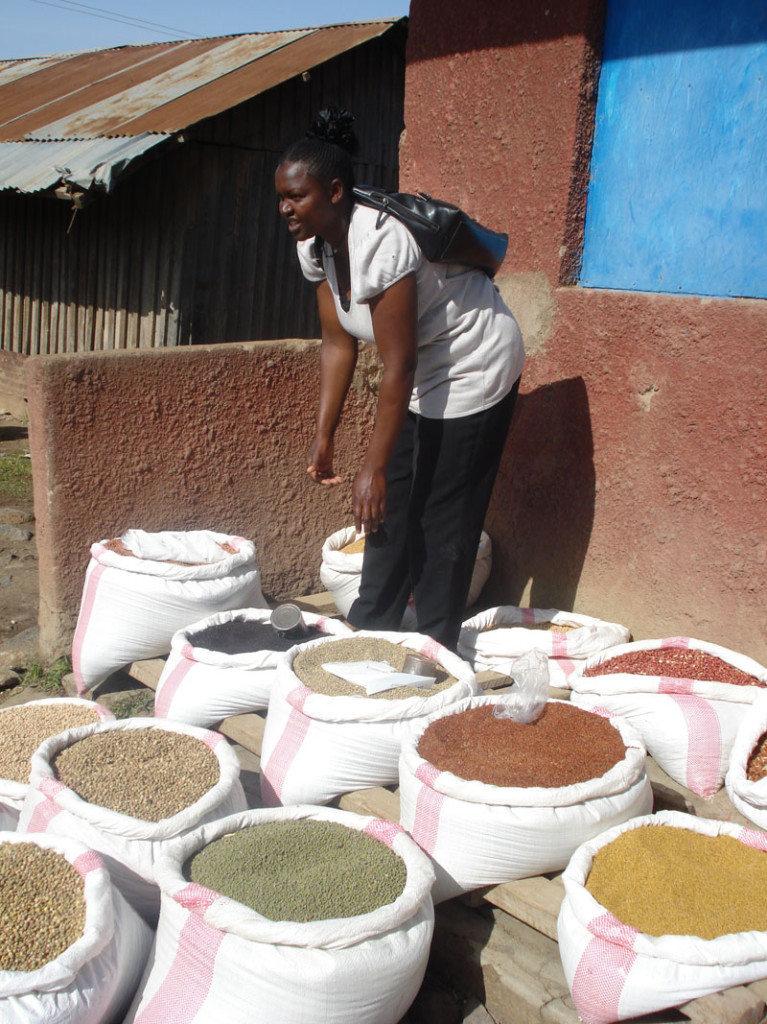The Daraja girls’ day starts with duties in their dorms before 6 a.m. and ends with study hall at 9:30 p.m. Each day is packed with studies, sports, clubs and chores – the girls need to be well fed to get through it all, and that responsibility falls on head cook Ruth and her kitchen staff.
Every Wednesday, Ruth takes on the weekly market trip to Nanyuki, a 40-minute drive away. She has a few regular vendors she knows will give her the best price. With the rest, she’s a tough negotiator to stretch Daraja’s food budget as far as possible; she knows that every bit she saves can be put to back into the girls’ education. Ruth walks between the rows of vendors until she finds the ones willing to knock down the price a little – with the quantities she buys for Daraja even a small discount can add up to big savings.
Some of the items on the weekly shopping list:
About 1,200 lbs of vegetables, including potatoes, tomatoes, onions, carrots, green peppers, zucchini , spinach, cabbage and French beans
300 lbs of fruit, mostly watermelon and bananas
700 lbs of dry ingredients – flour, rice, sugar and uji mix (hot cereal made from several types of flour, beans and nuts) 360 eggs
Others – cooking oil, soap, detergent, paraffin, toilet paper
Ruth’s day begins just after breakfast, and around suppertime she’ll return in a hired matatu – a 14-seater Nissan minibus – with all of the provisions. The road from town can be a bit rough at times, so the egg flats are balanced on passengers’ laps for the return trip to campus.

